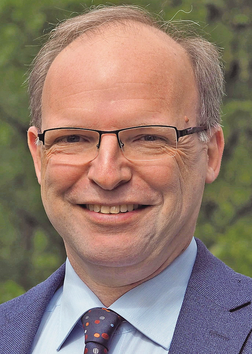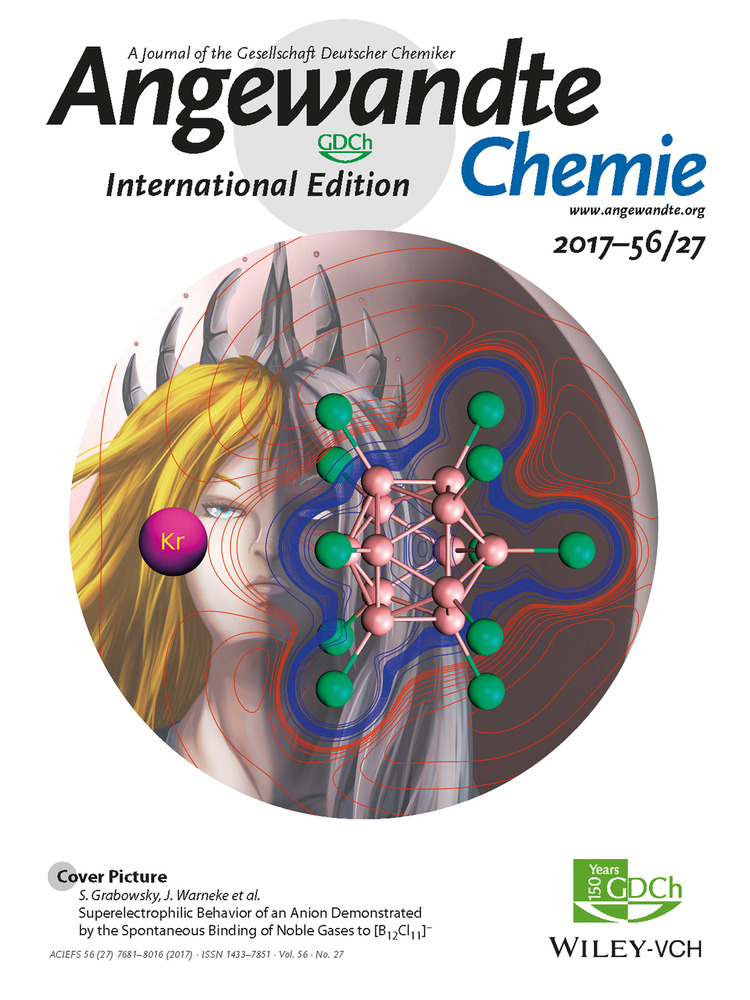Feeling the Pulse of Chemistry—Already in Practical Laboratory Courses
Graphical Abstract
“… The lessons that students can draw from a lab course are unique throughout the entire study of chemistry. Equally important and valuable is the authentic lab experience and the constant repetition of the link between acquiring knowledge, thorough observations, logical thinking, self-critical tenacity, and capacity for success throughout the experiments. The ultimate gain is satisfaction ...” Read more in the Editorial by Roland A. Fischer.
Five years later, I was a PhD student at the Faculty of Inorganic Chemistry, and a lab assistant myself. Later on, I was even in charge of the organization, until I left the TU München in 1996. Since then, there has been a continuous change within the study of chemistry, not only in the introductory phase, but also in the overall approach. The prolific overlap with medicine, biology, physics, and materials science, together with the rapid growth of industries and modern technologies, are perforating the traditional subject boundaries of chemistry. This is fortified by the access to powerful instrumental and theoretical methods created for measuring, calculating, and simulating chemical phenomena. Consequently, new priorities are generated and centripetal forces appear within faculties. It is therefore important to ask: what common ground remains? Individual interests are present at the level of organization, which includes administration, accreditation, and continuous development of structure and content in chemistry courses. This has resulted in a decrease in complexity and scope of the introductory lab course. The manual-skill set obtained in such courses appears to be expensive when considering the required lab space and personnel. Moreover, these courses seemingly appear less functional, particularly when considering the needs of subsequent and more advanced stages of studies of chemistry. Ultimately, “analytical chemistry” has dramatically changed over the past decades. In fact, at the beginning of my almost 20-year tenure at the Ruhr-Universität Bochum, I altered this rather antiquated style of lab course to meet the above-mentioned changes. That said, it is the purpose of this Editorial to outline where, in the future, we could see a persistent and very valuable core in the seemingly traditional orchestration of lab introduction. My impetus is the experience I have gained since my return to the TU München, my alma mater, in 2016. I have observed a shift of focus in chemistry studies, in particular moving towards more written exams at the beginning and end of each term. Such consequences also result in a packed schedule for students, and in shorter lab courses. Student numbers are currently increasing steadily. Therefore, can we ultimately say that it is responsible resource management to let every single student “feel the pulse of chemistry” at the very beginning of their studies?
An authentic start to an undergraduate lab career, in my opinion, should primarily be focused on a valuable introduction to scientific thinking and behavior, leading to good scientific practice, and therefore experience with self-dependent, research-oriented learning. An ideal preparatory study for chemistry, which originates from empirical observations, is the playground of an inorganic analytical lab course, namely the quantitative and qualitative analysis of ions in aqueous solution. Within ion analysis, there are a confined number of chemically relevant and important principles, for which intellectual adoption is manageable with acceptable effort, even in the absence of thorough didactical guidance and close supervision. The skill set needed to successfully perform in such a lab course, for example handling glassware and devices, as well as methodologies, is comprehensive for novices in the field. Neither a lack of advanced mathematical education, nor a certain level of ignorance towards the function and the physical principles of the applied technologies, nor a lack of background knowledge about computers, will obscure the view on the chemical challenges and the way to solve these. This intellectual transparency is a valuable part of a traditional introductory lab course. In my opinion, the lessons that students can draw from such a lab course are unique throughout the entire study of chemistry. Equally important and valuable are the authentic lab experience and the constant repetition of the link between acquiring knowledge, thorough observations, logical thinking, self-critical tenacity, and capacity for success throughout the experiments. The ultimate gain is satisfaction: the explicit solution of a chemical problem by self-dependent chemical thinking, within a well-defined parameter space of precise complexity, created with simple tools. However, the success of such a welcome to the field of chemistry mainly depends on the administration of the content, and on organizational finesse. This was not a big challenge in 1981. Back then, the strategy was to give us time and leave us to our own devices. Times have since changed. In fact today, time itself is a critical value. This lack of time contradicts the freedom to make mistakes, and reduces the exposure to rather useful hurdles that allow failure but foster tenacity. Independently identifying problems and solutions, and orienteering the chemical landscape through suitable experiments, are the main components to the introductory function of traditional lab courses.
Today lab space is more expensive, time is precious, and the study of chemistry is confined to a tightly packed schedule. Adaptation to such conditions, as well as the political framework, results in short lab courses in which failure should be, and in fact is, a rare encounter. Success is often guaranteed when following detailed instructions that are provided by supervisors. Lab courses like these always existed, but are increasing in number. It is important to mention that, under certain circumstances, such lab courses can have a meaningful value, such as the efficient exposure of students to chemistry over a broad range of topics. The risk is clear—the manifestation of a wrong perception of science. When reality is later encountered, it can lead to a rude awakening. A lab course in synthetic chemistry, which emphasizes training in manual skills instead of creating an environment where meander is possible as part of the teaching process, would systematically abstain from requiring students to give evidence, for example demonstrating the characteristics of an authentic sample through the right choice of analytical techniques. A lab course in analytical chemistry that tackles state-of-the-art methods through black-box processes can similarly be a risk, when for instance, the handling of the machine and program is the focus, instead of the chemical and scientific problem. These inconsistencies are solved, at the latest, when students are individually integrated into specialized research groups, advanced lab courses, their bachelor's or master's thesis and, surely, during the timeframe of their PhD thesis. From this perspective, an early integration into research groups as well as an early specialization is a valuable outcome of the academic reform that has been in place since the year 2000, at least in Germany. In contrast to that, however, teaching transferable competencies and qualifications in basic studies has cumulatively decreased at universities, echoed similarly by the rampant progress of lab courses becoming school-like classes.
It is a fascinating and thorough challenge to counteract this trend. You cannot get good teaching for nothing. If the goal is to be as excellent in teaching as in research, then teaching becomes expensive. A certain inventiveness, creativity, and sustainable enthusiasm in the teaching body are required, on a level that is far away from the immediate self-interest of specialized research. I would be happy to debate a statement that the qualitative and quantitative analysis of ions is more relevant to inorganic-chemistry-related research than to any other chemical discipline! The introduction of students to our lab courses is supposed to be timely and exciting, and must be orchestrated as an expression of the broad majority of faculty, for instance, through a schedule where the synthesis and analysis are linked authentically, and the course is organized in a way that it provides students with an effective introduction for research. That is my message. Despite acknowledging structural boundaries and the tightness of resources, there are several opportunities to surmount this challenge. If managed successfully, the pulse of chemistry remains accessible, even today, for the students. Perhaps, as a positive outcome, even leading researchers gain gratification and enjoy the hustle and bustle of visiting their first-year students’ lab courses. There were such moments in my past, when the door of the lab opened and Ernst Otto Fischer, the Nobel Laureate, entered the freshman class, amicably but critically examining our performance, and challenging us with questions. It is a treasured memory that remains to this day!






